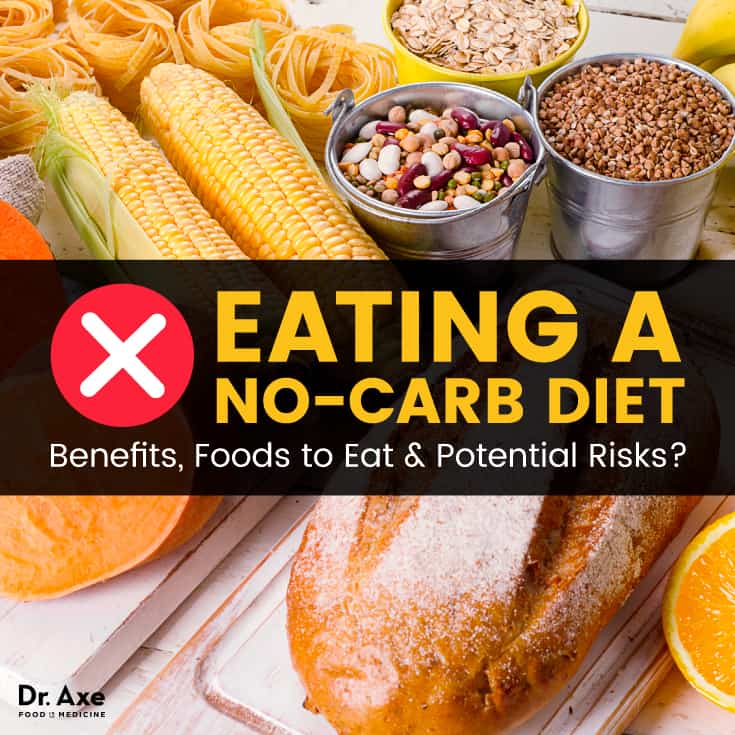No-Carb Diet Plan Benefits, Foods to Eat & Potential Risks?
Find out about Dietary supplements to Support a Healthy Cardiovascular system

By Jillian Babock and Rachael Link, MS, RD
Take a moment and imagine slashing your carbohydrate intake by 90 percent. It sounds incredibly challenging but still possible. Now imagine following a no-carb diet plan completely free of all carbohydrates, including pasta, bread, legumes, baked goods, sweets and even fruits and vegetables. To many, the thought of a low-carb diet, let alone a diet without any carbohydrates at all, probably seems like a cruel form of torture.
As opposed to the high-carb and sugar-addicted diets that most people living in industrialized nations eat today, no-carb diets tend to spark fast weight loss by reducing foods like grains, fruits and sweeteners. Cutting these sources of carbs from your diet changes what type of macronutrients your body uses for fuel. Each no-carb/low-carb diet is a bit different, but most drastically reduce glucose (sugar) intake over the course of several phases, resulting in a diet that keeps carbs to about 20–50 net grams or even less daily.
Some people following a near no-carb diet consume up to 80 percent to 95 percent of their total calories from fats and proteins, especially from things like oil, fattier cuts of meat and butter. Compare this to the Dietary Guidelines for Americans recommendation of consuming 45 percent to 65 percent of your total daily calories from carbs! (1)
Is a very reduced carbohydrate diet healthy or even safe? Although it’s very difficult to eat next to no carbs for an extended period of time, when done short-term and in a healthy way, very low-carb diets can be beneficial for the right people. Reduced carb diets, including the ketogenic diet, have well-documented health benefits — including helping treat seizures or epilepsy, obesity, dependence on sugar for energy, and common risk factors for diabetes and/or metabolic syndrome.
While study results are mixed overall, certain large studies have found that low-carb dieting tends to be more effective for short-term weight loss than low-fat diets. And generally speaking, the lower-carb the diet is, the likelier it is to result in very rapid weight loss, especially for those struggling with obesity. On the other hand, carbs are needed for more than energy — they also give us fiber and are found in plant foods that contain essential nutrients, such as antioxidants.
So should you, or shouldn’t you, give low-carb dieting a try? Below you’ll find out how no-carb diets work, which foods are included, potential benefits and also the risks involved.
What Is a No-Carb Diet? Is It Even Possible?
Although comparable to the ketogenic diet, a diet that severely limits carbohydrate intake and focuses on healthy sources of fat and protein, a no-carb diet eliminates carb intake completely. Even foods that have small amounts of carbohydrates are off-limits in this restrictive diet.
While it may come with similar health benefits as low-carb and ketogenic diets, it also comes with a whole different set of risks and...
[Read More ...]
Most reliable nutritional supplements with regard to Cardiovascular Health!
